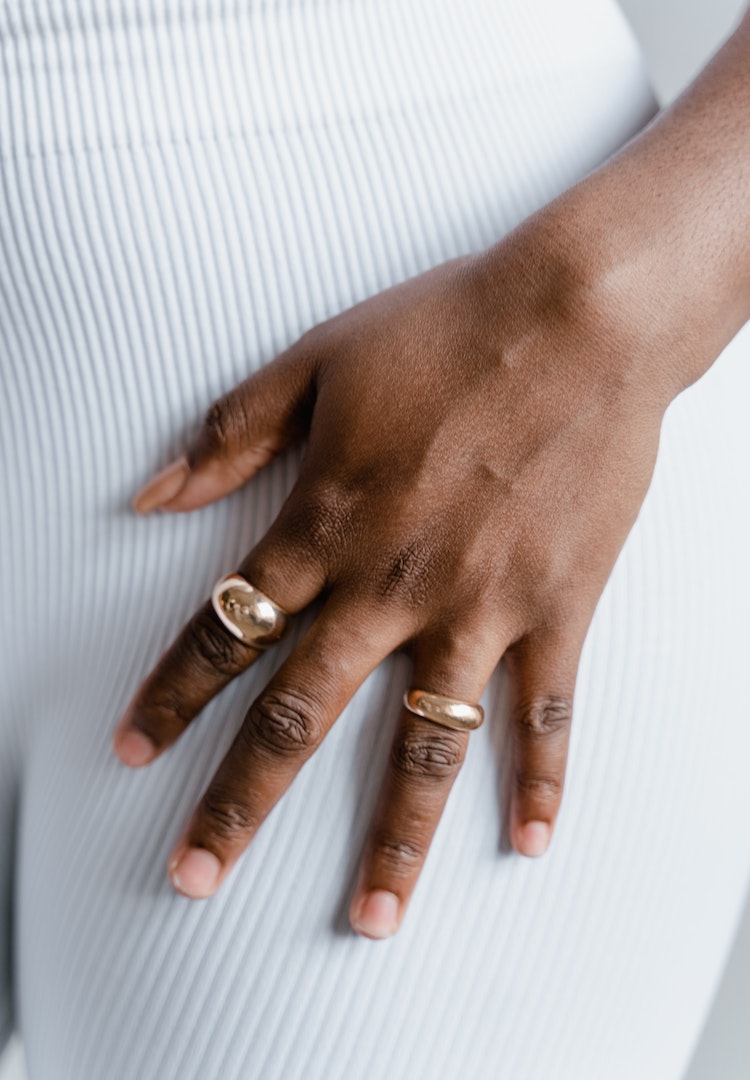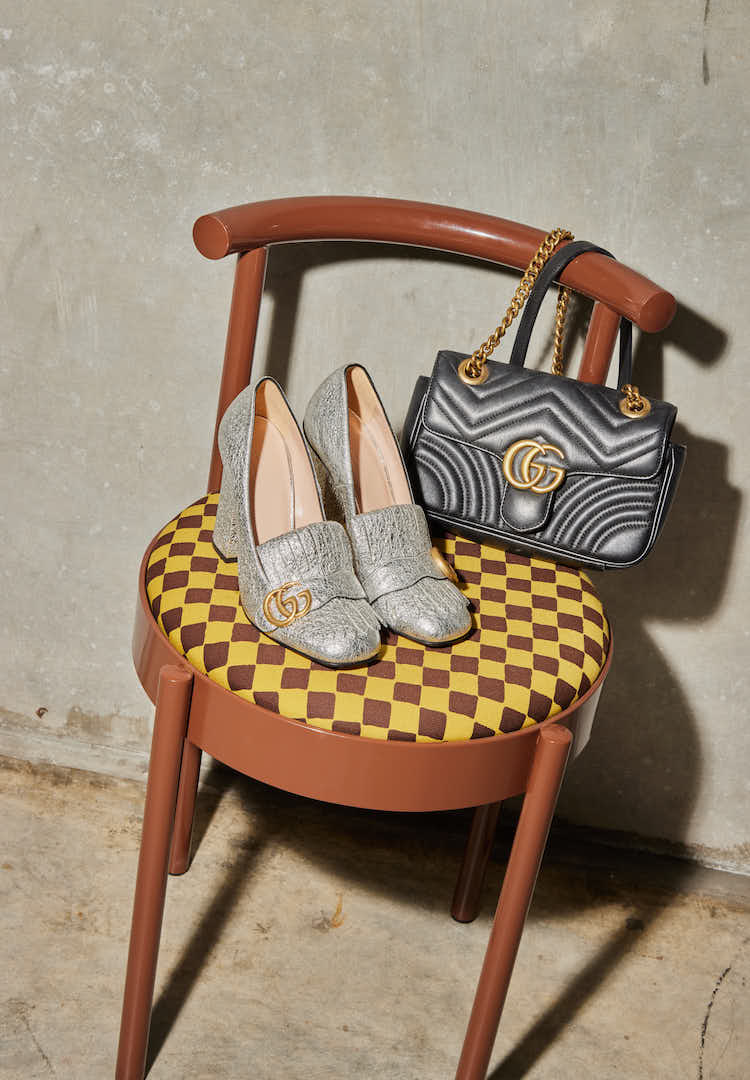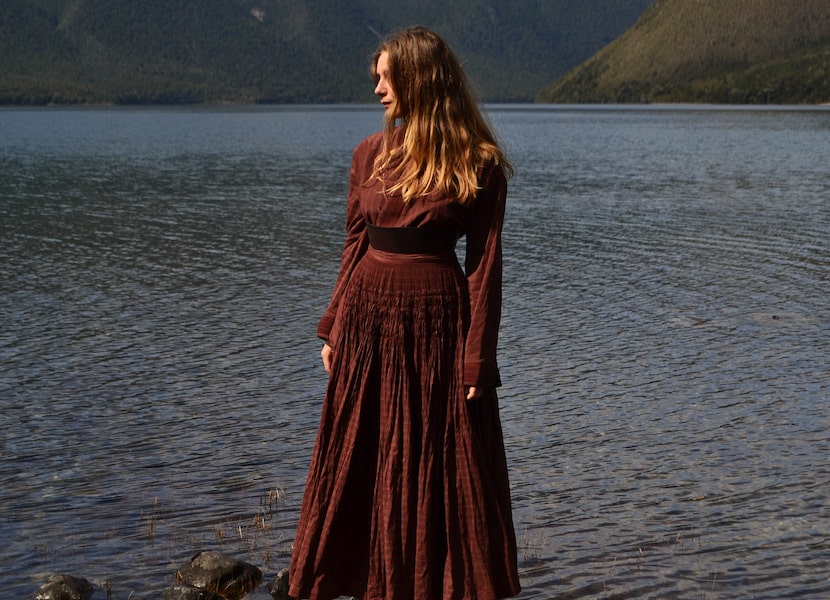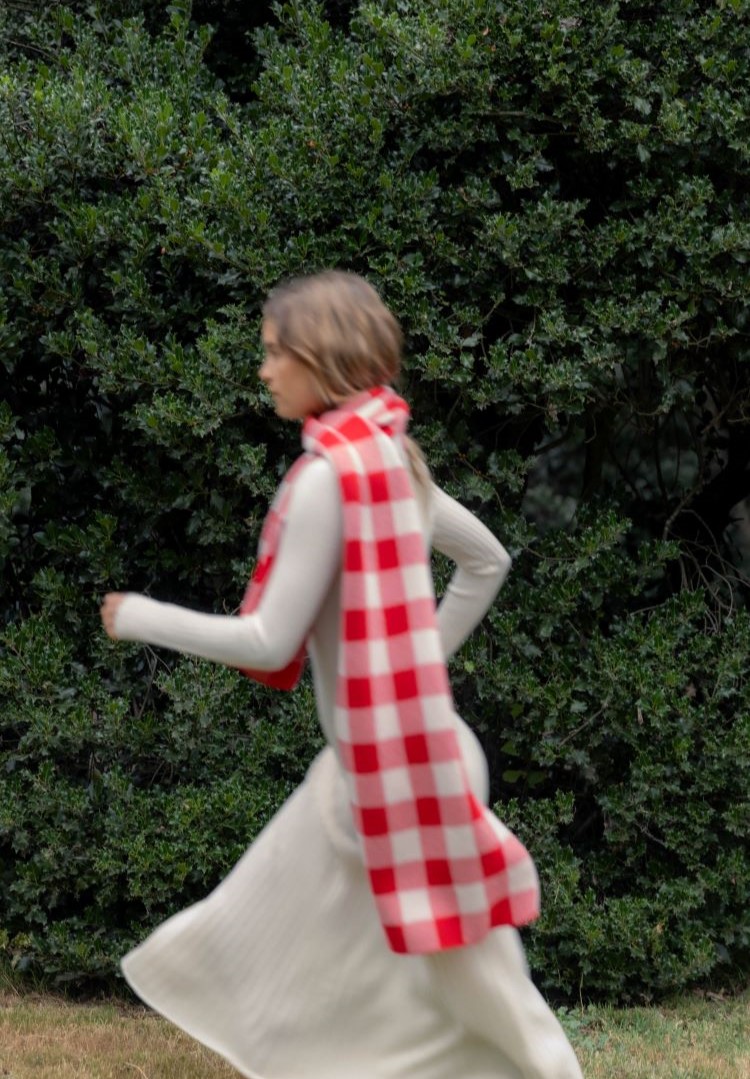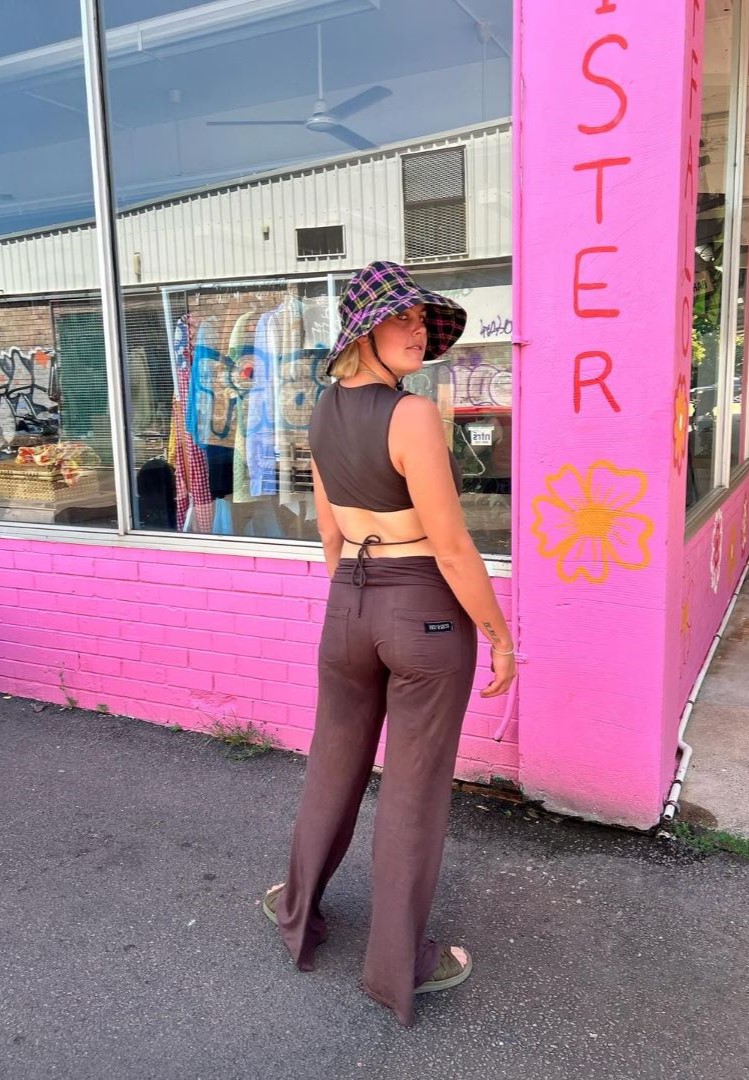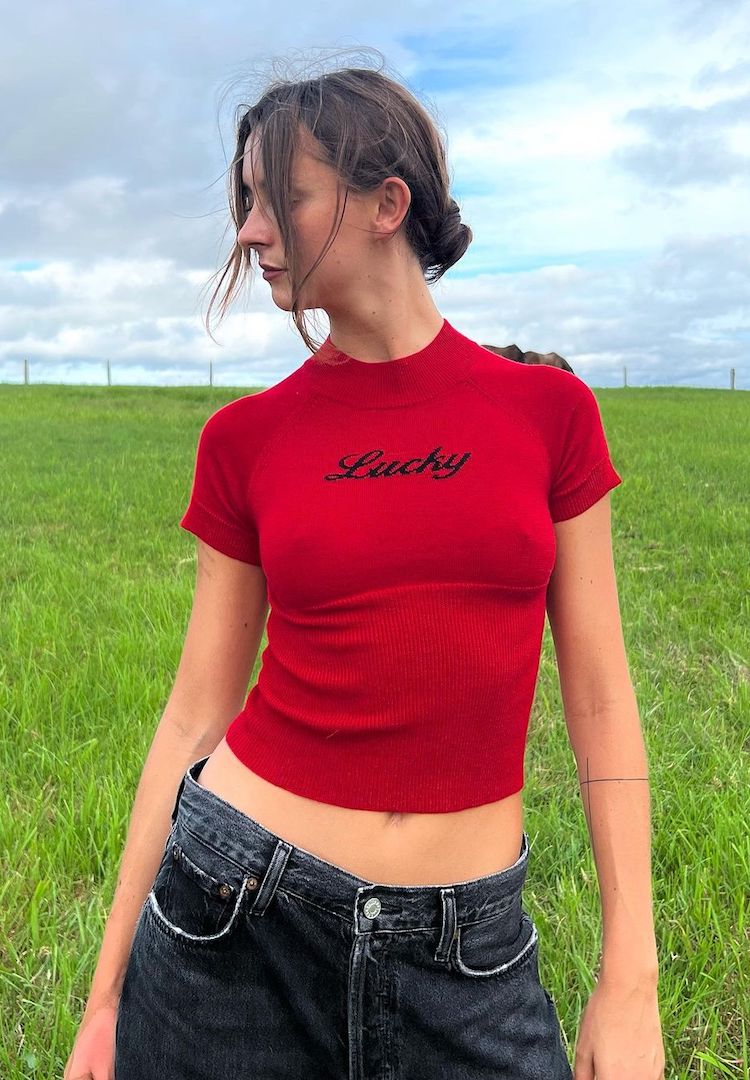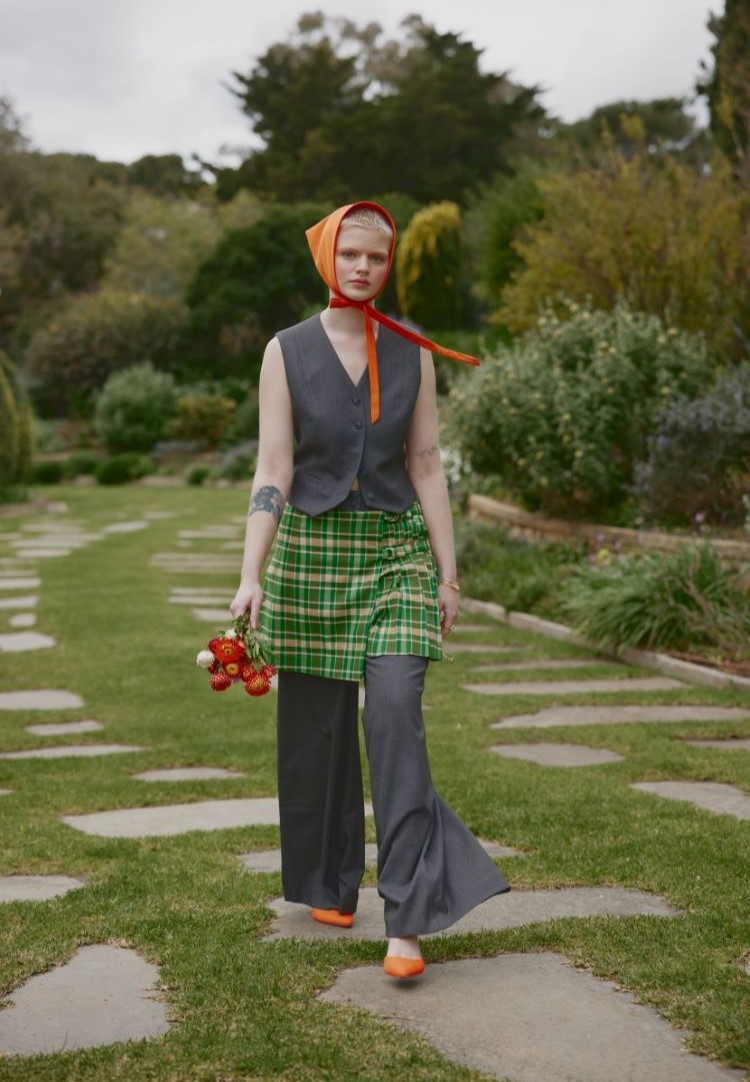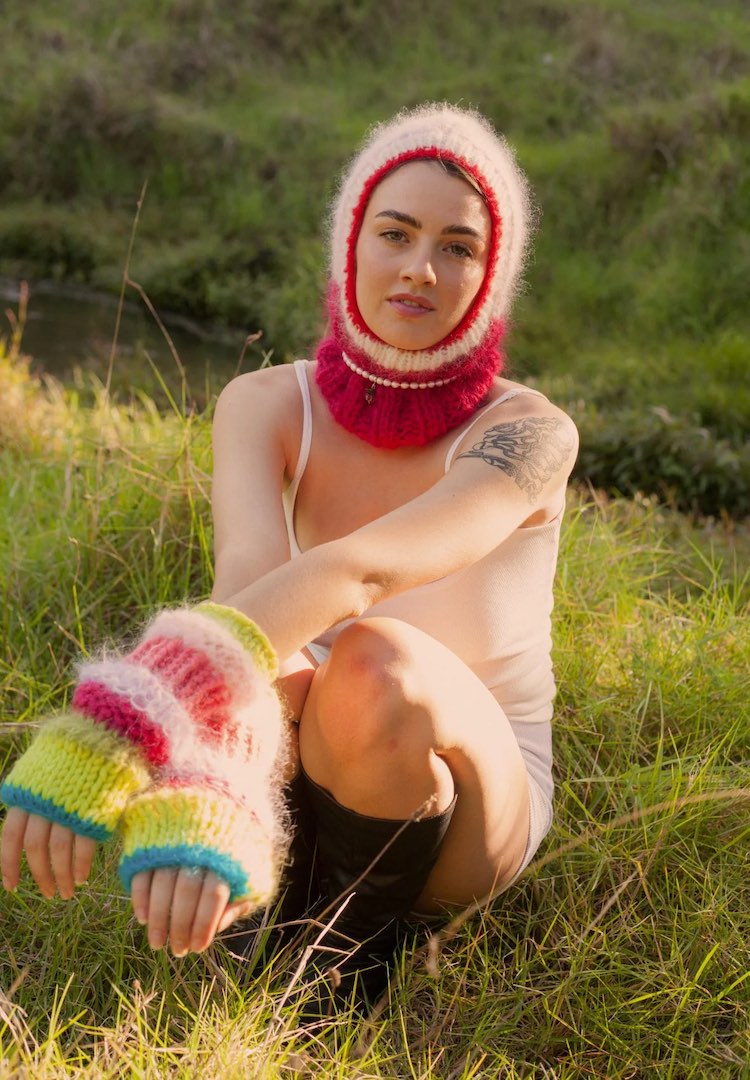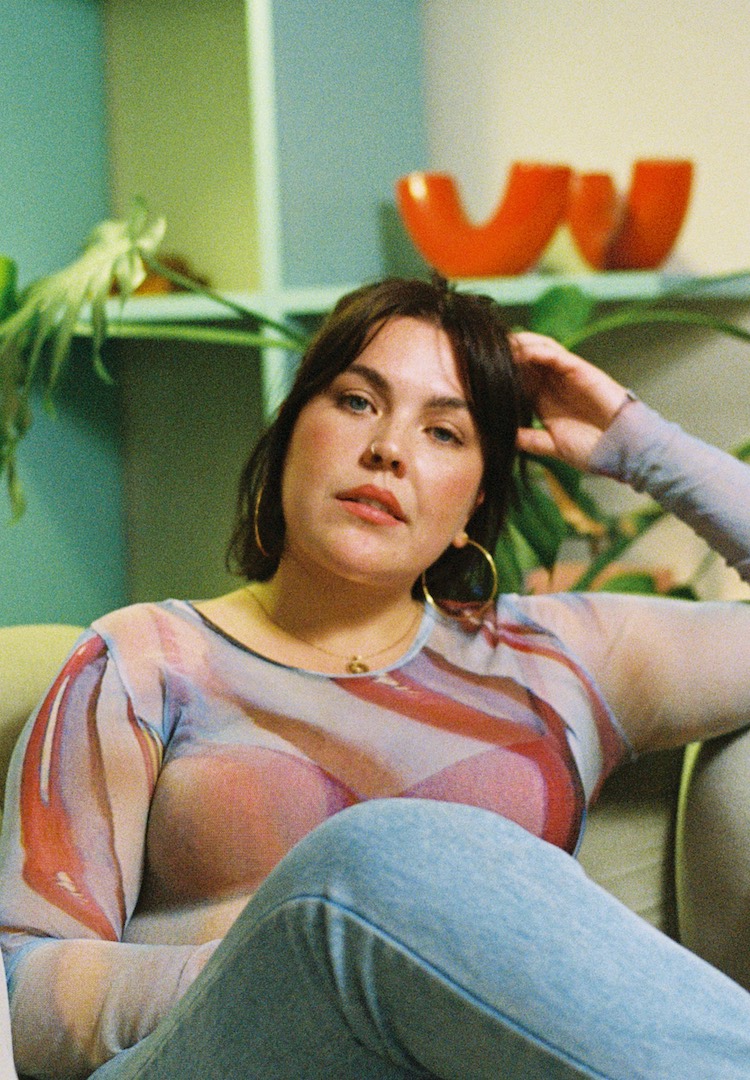New Zealand fashion project 6 x 4 is drawing connections between maker and material
IMAGE VIA @6X4ONLINE/INSTAGRAM
WORDS BY IZZY WIGHT
“Clothing is so much more than its physical characteristics – it holds emotional, social and spiritual power.”
Too often in fashion, we conflate designer and design. While the creator behind the garments is important, the clothing – and the chosen textiles, craftsmanship and ethical considerations – should speak for itself. Shouldn’t it?
This is the question that the anonymous maker behind 6 x f4, a Christchurch-based clothing label and conceptual art project has explored through his label. On each garment’s tag, where the name of a fashion label would usually go, he has instead left a 6cm x 4cm piece of material. “I didn’t want the label to be my name, I wanted to acknowledge the importance of materials by making the material itself be the label,” he explains.
For more fashion news, shoots, articles and features, head to our Fashion section.
Using repurposed and secondhand materials, he creates one-off garments inspired by East Asian (particularly Korean) clothing traditions and techniques. Each piece features hand-sewn details, natural dyes and handmade elements. Below, he tells the story behind 6 x 4.
Tell us about you. What’s your fashion background?
View this post on Instagram
I didn’t study fashion but I was always interested in clothing. I went to art school with hopes of becoming a painter/printmaker but in my second year (in 2011), I gave up on that dream and decided I only wanted to make functional objects. That was when I started… 6 x 4, more as a conceptual art project than a clothing label.
My sewing wasn’t very good at the time, I was just playing around with materials and ideas. After art school, I joined a design collective with some fashion students who made me realise I needed to improve my construction skills. From then, I focused on improving my sewing skills and learning how to make good clothing, rather than just fun conceptual stuff.
View this post on Instagram
I wasn’t quite sure if I wanted to be involved in fashion, so I moved to Paris to work in the industry so I could decide. I had some amazing opportunities while I was there. I worked as a couturier for a small house, where I learnt to appreciate handwork. I worked in the Comme Des Garcons and Junya Watanabe showrooms during fashion weeks while making my own work on the side.
At the end of my working holiday visa, I got offered a job in textiles at Chanel but I chose to come back home because I really just wanted to make my own work. I’ve been happily based in Ōtautahi, Christchurch ever since.
How did the label get started? Talk us through the process and the challenges.
View this post on Instagram
I have always made one-offs using secondhand fabrics. I make everything myself and have never outsourced any part of the production, so this has kept things manageable and allowed for me to make exactly what I want… I’ve been offered opportunities to expand as a business but it has never really appealed.
I think this is what has allowed me to choose the projects I enjoy and work with whatever media I like, not just clothing. However, this has meant balancing work and life is quite challenging: I work a lot and since my studio is at home, it’s difficult to stop thinking about it. It’s important for me to find value not just in my work, but also in my personal life – so finding that balance is crucial.
What were you trying to achieve from the project at the time? How has this evolved and what are you trying to communicate through the brand now?
View this post on Instagram
When I started 6 x 4, I was thinking about ideas to do with the body and the experience of the individual self in relation to the others and world. I think clothing is a particularly good medium to talk about ideas of identity and body. As a queer, Korean-born New Zealander, I had a lot of questions surrounding these topics… working out these concerns through the language of clothing felt very natural.
It was quite an empowering and healing way to relate to my own body and identity. I think what I make these days is a bit different. Those initial concerns haven’t gone away, but I am more interested in the roots of clothing as a human phenomenon. The global fashion system is largely a Western construct, so I am interested in what it means to find a voice as someone of the Asian diaspora. The fashion industry is a huge contributor to the climate crisis, and its history is closely tied to colonisation and horrible labour conditions.
View this post on Instagram
In the face of this industry, which creates so much waste, how can we find those moments of intimacy and self-identity in clothing, which has been with us since the very beginnings of the human story? Clothing is so much more than its physical characteristics – it holds emotional, social and spiritual power. But I feel the current landscape of the garment industry doesn’t allow much space for personal connections like this. I want to try and find that through my work.
Where did the name come from?
For each of my garments, the label is a 6cm x 4cm piece of fabric, the same [textile] as what the garment is made of, sewn where a garment label would usually be. I didn’t want the label to be my name, I wanted to acknowledge the importance of materials by making the material itself be the label. I think of making as more of a conversation between material and maker… I wanted to acknowledge this in how I labelled my pieces.
View this post on Instagram
How would you describe 6 x 4 to someone who’s never seen it before?
Pretty much all of my pieces are one-offs made using secondhand, vintage or repurposed/recycled materials. They often feature hand-sewn details, natural dyes and handmade elements like buttons. I would also say there is a strong influence from East Asian (particularly Korean) clothing traditions and techniques.
What are you most proud of in your work on your brand?
I would have to say I’m most proud of the fact that I’ve been able to do this on my own terms for so long. I’ve never really had to compromise, and I think this has allowed me to consistently find joy in what I do… under the 6 x 4 label, I have not just worked with clothing but moved between a wide range of media: shoes, furniture, homeware, jewellery, bags, hats and fragrance. I really enjoy this and I’m very happy that I’ve been able to turn my attention to whatever takes my interest while sustaining an audience.
Who do you think is most exciting in the Australian/NZ fashion scene right now?
View this post on Instagram
There is a wonderful community of artists who live in Otautahi whose work I love and admire: Evan Beijnan, FBPD, Being and Paige Jansen. There is something enriching and exciting about seeing the practices of others who live in the same place. We seem to share a lot of similarities in our work that relate back to the landscape.
There are also some textile artists whose work I really admire: Hone Bailey, Rowan Panther and Nikau Hindin. I love Georgina May Young’s embroidery, and the recent collaboration of hand-painted garments between Nichola Shanley and Karena Carran was amazing.
What about the Australian/NZ fashion scene needs to change?
View this post on Instagram
… I hope that in smaller countries like New Zealand, we can dream of new ways we can engage with clothing and its impact on people and the environment. I acknowledge it’s a huge privilege to be talking about these aspects of the industry when people need affordable clothing, but I believe that changing the culture around clothing can bring about meaningful change. I think designers can play a role in dreaming of how this can come about.
How can we buy one of your pieces?
I currently have four stockists in New Zealand: Tur Studio (Tāmaki Makaurau, Auckland), The Service Depot (Pōneke, Wellington), Collecte (Whangārei) and Midden (Ōtepoti, Dunedin). My very first stockist in Ōtautahi, Christchurch (NG Boutique) has sadly closed down but if they do any pop-ups, I’ll be a part of that. Otherwise, just hit me up on Instagram!
For more 6×4, head here.

